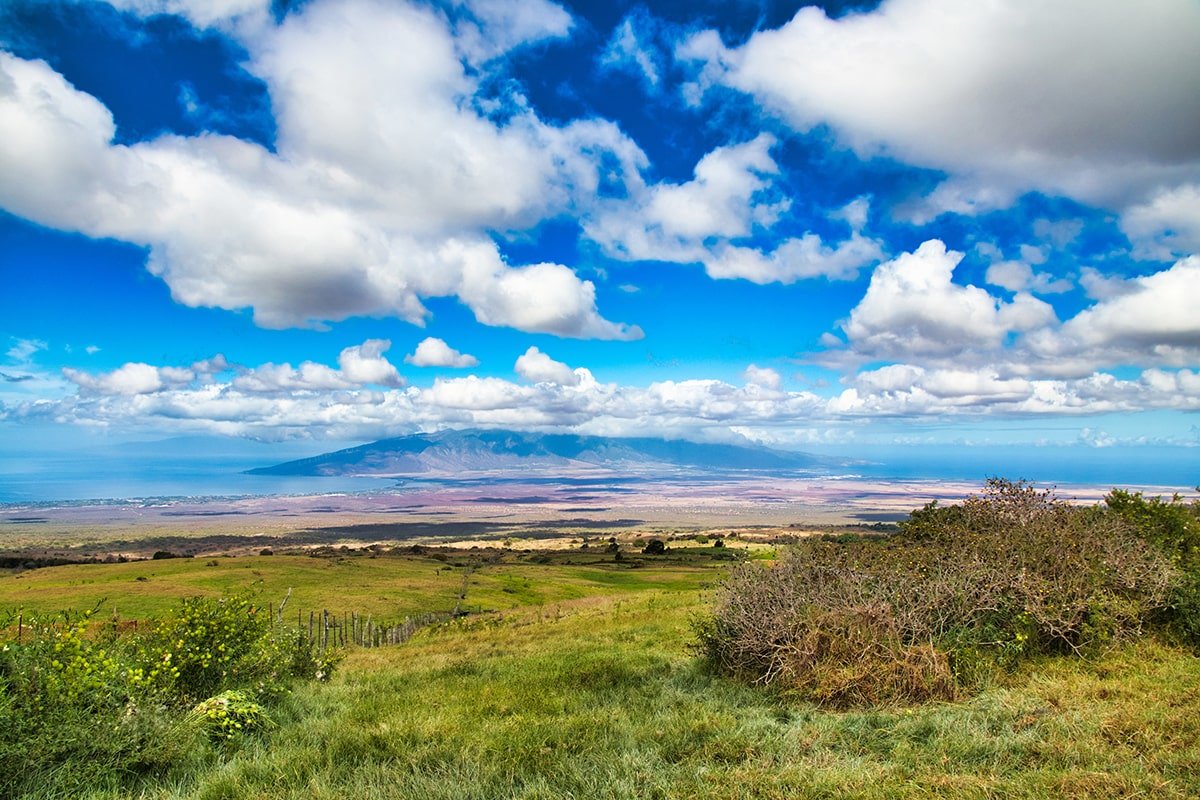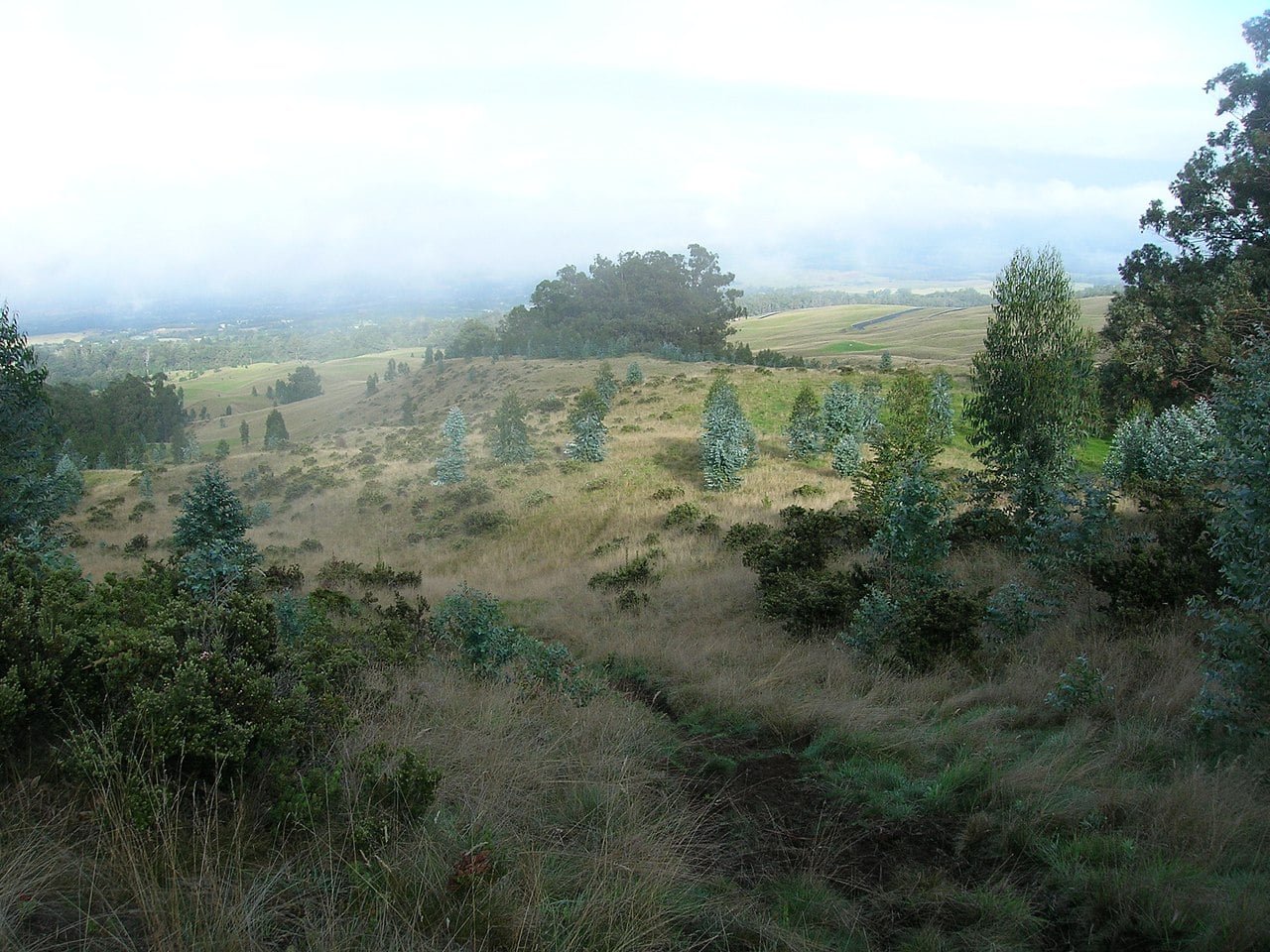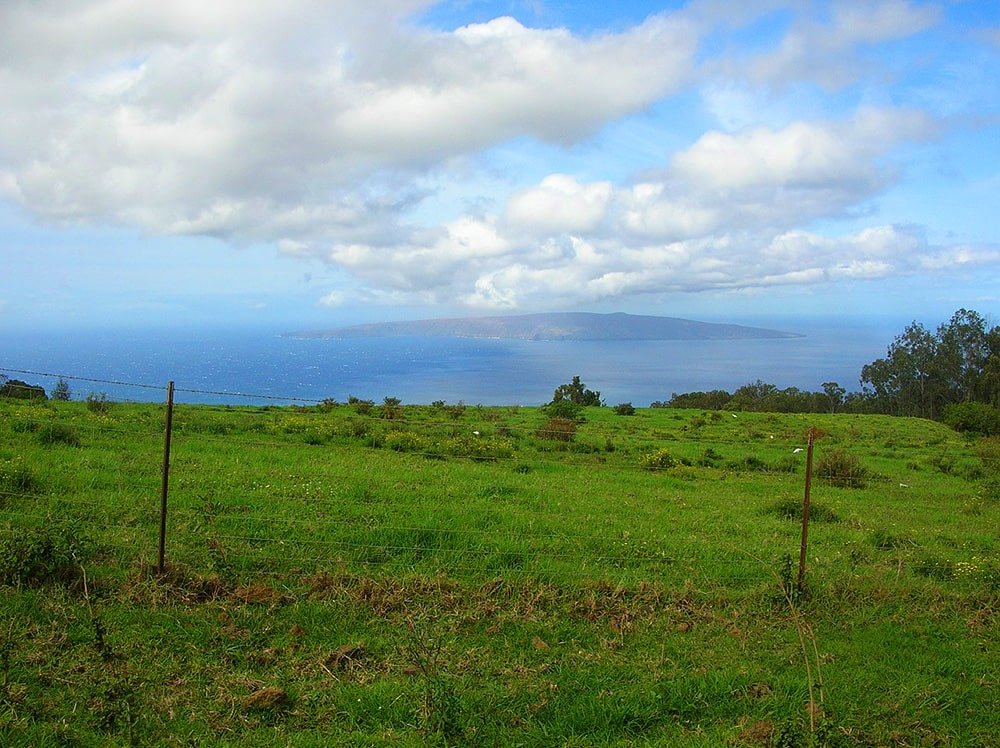History of Maui's Pioneering Ranches
Posted by Island Sotheby's International Realty on Friday, March 13th, 2020 at 9:33am

When you think of Maui, you think of swaying palm trees, an oasis of blue shorelines, and maybe a pina colada or two. You would never expect Maui to have a commercial livestock industry or a rich, paniolo (cowboy) heritage and lifestyle, but it’s true. The first cattle arrived in Hawaii in 1793 when Captain George Vancouver presented King Kamehameha with six cows and a bull. By the late 1800s, Maui began to see the first family-owned ranches and the birth of Mauiʻs cherished paniolo heritage and lifestyle in the cool, Upcountry Region of the island. Today, Haleakala Ranch and Ulupalakua Ranch are partners, providing cattle to the Maui Cattle Company brand which is now owned by Mahi Pono.
1. Haleakala Ranch
 Forest & Kim Starr / CC BY 3.0 US
Forest & Kim Starr / CC BY 3.0 US
Haleakala Ranch is Maui’s largest and oldest family-owned ranch. Saddling the leeward slope of the majestic volcano Haleakalā, the ranch has defined Upcountry Maui since 1888. Ranchlands encompass 29,000 acres of an incredibly diverse ecosystem that rises from the southern shoreline to more than 9,500 feet in elevation: from rocky coastlines to rainforest; from pastureland to native forest. Cattle have always been at the core of Haleakala Ranch operations, and their rolling green pastures create the open space that is priceless to the Maui community and lies at the heart of the company’s stewardship. These well-managed grazing lands not only provide sustenance and scenic beauty, but enhance the watershed, improve the ecological health of the land, and provide an effective safeguard against wildfires. In keeping with the legacy established by co-founders and brothers Sam and Harry Baldwin, six generations of ranch families and employees have worked to preserve these open, verdant vistas of Upcountry Maui for the benefit of current and future generations.
Today, as one of Maui’s largest landowners with more than 100 family shareholders, Haleakala Ranch maintains this lasting dedication to stewardship of the island’s land, water, and other precious resources. In addition, Haleakala Ranch carries on the paniolo heritage as an integral part of its livestock operations, running more than 1,200 breeding cows of Black and Red Angus. The premium grass-fed beef is marketed under the Maui Cattle Company brand, now owned by Mahi Pono, promoting a local, sustainable ranching industry. Well-managed pastures create the green vistas of Upcountry Maui and serve to enhance watershed, improve soil health, and guard against wildfires.
Through thoughtful land management, stewardship, financial investment, and commitment to conservation, Haleakala Ranch maintains healthy open spaces that benefit the entire community. Thousands of residents and visitors enjoy Waikamoi native rainforest. This East Maui preserve was created when Haleakala Ranch granted a perpetual easement to The Nature Conservancy in 1983 to manage 5,230 acres of critical upper watershed land. Additionally, thousands of people experience and appreciate the pastoral beauty and tranquil open space of Upcountry Maui every day as they drive the scenic route to Haleakala National Park.
2. Ulupalakua Ranch
Established in 1845 and spanning across 18,000 acres from the ocean to Haleakala Volcano, rests Ulupalakua Ranch. While the views are stunning, Ulupalakua has more hidden gems behind the scenes of the beautiful property. Ulupalakua Ranch has fun for all ages that span across the entire property. Horseback riding, clay shooting and indulging on the rich and timeless fine wines that Ulupalakua Ranch offers. That’s right, no whining here (pun intended). After you’ve spent your day in the sun, riding horses, enjoy a visit to Maui Wine, the only winery on the island.
Once you’re done venturing through the windy upcountry roads around the ranch, grab a bite to eat at the infamous Ulupalakua Ranch Deli. Opened in 1849, this family-friendly deli serves fresh and ready hot grilled sandwiches and deli sandwiches. The store prides itself on remaining local and organic by using ingredients sourced on the island and on the property, such as the grass-fed beef or elk. Through exploration, visitors will have a chance to learn more about Ulupalakua Ranch’s rich history on Maui and how they focus on tradition and culture while preserving the agriculture and natural areas.
3. Kaonoulu Ranch
.jpg)
Forest & Kim Starr / CC BY 3.0 US
Welcome to a ranch that has family traditions intertwined with its rich one hundred year history. To this day, Kaonoulu (the delicious breadfruit) Ranch continues its traditions that have been passed down from centuries ago. Stretching 10,000 acres from the south shore to Haleakala, Kaonoulu Ranch has a rich history that contains one of the few ahupua’a (land division) systems left in Hawai’i. The ranch’s deep ties to family tradition are what makes is so special. The Rice family has tended cattle for over a century while overseeing the hills of Haleakalā. Grown and raised on the economic boom from sugar and pineapple, Kaonoulu continues to keep its presence on Maui through ranching traditions and devotion to protecting the sacred land that lies on the slopes of Haleakala. With such strong family values, Kaonoulu’s owners help and develop youth rodeo programs as part of its community efforts. They also extend their passion for native preservation by working with the Leeward Haleakalā Watershed Restoration Partnership. Together they work to restore native koa trees on Maui’s countryside.
Kaonoulu may be smaller to Haleakala Ranch and Ulupalakua, but the area that it occupies has remnants of an almost complete ahupua’a. This remains a reminder to the community what a significant place in Hawaiian history the land holds.

Leave A Comment